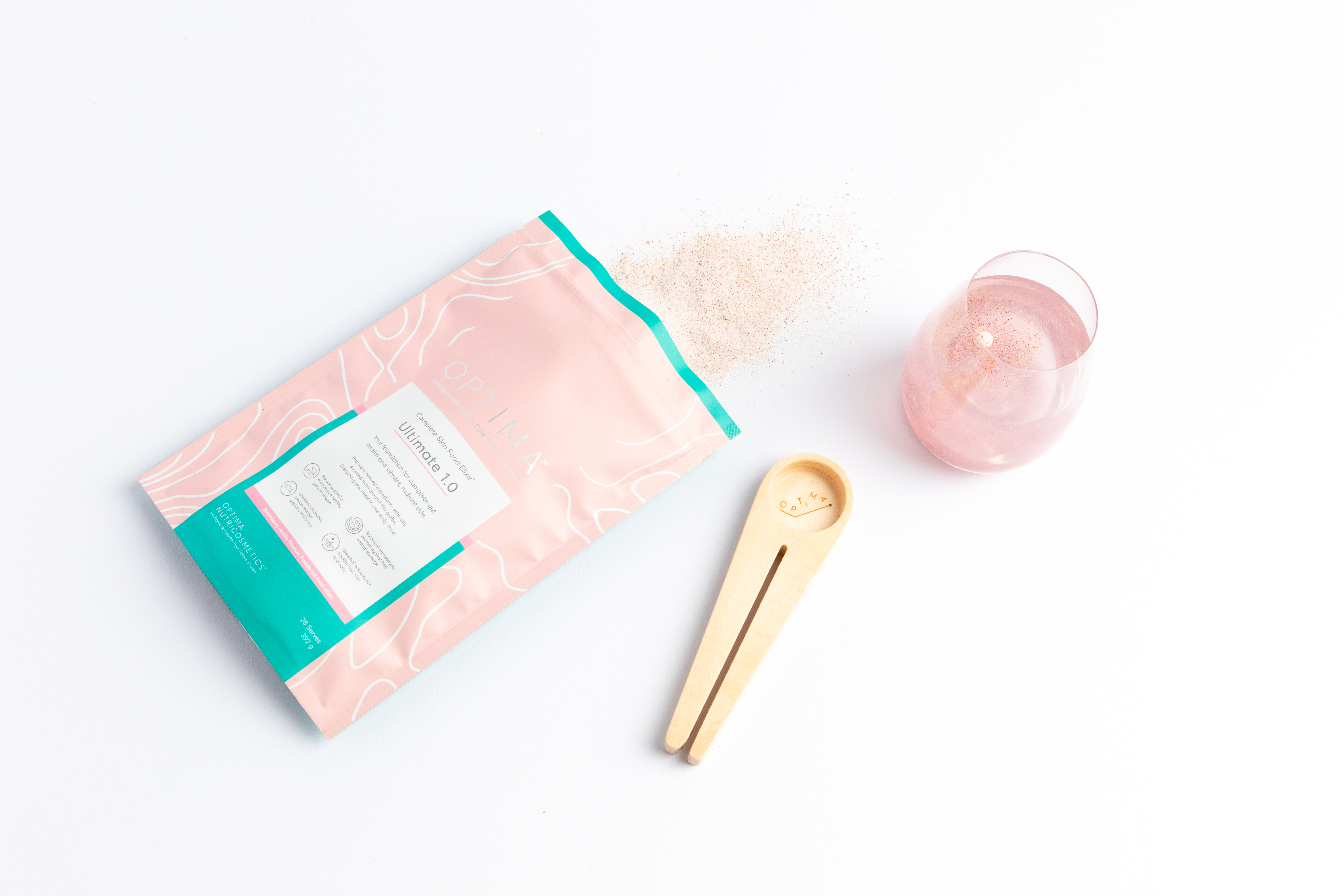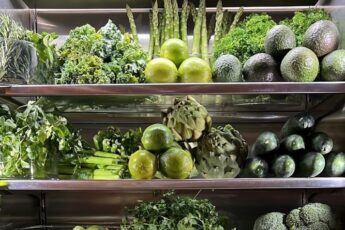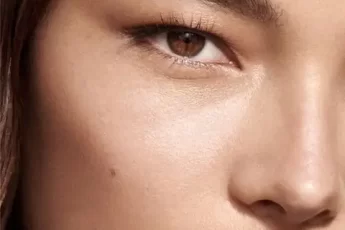Diet and skin are that power couple we can’t stop talking about and we wanted to give you a deeper understanding on how to get started if you’re not one of us yet.
We asked Cate Lilja nutritional, herbal, and complementary medicine scientist, Cate is also the co-founder of Optima Nutricosmetics on her hacks to smash that power couple off, I’m sure you’re gonna learn a few things from her, we indeed did it!

What A ‘Good Skin Diet’ Looks Like
When we look at the health of our skin, it’s common to manage any imperfections, be it pimples, pigmentation or fine lines with a superficial approach, such as make-up. However, treating the cause of our symptoms, such as looking at the health of our gut, may actually resolve many of our skin woes and have long term overall positive benefits.
Start with the gut
When it comes to eating for your skin, start by feeding your gut and microbiome. The best way to do this is by eating plenty of pre and probiotic foods. These will help to maintain a healthy gut and microbiome that keeps inflammation in your gut in check and ensures your digestion is running smoothly.
- Probiotic foods come in the form of fermented foods such as yogurt, sauerkraut and Kombucha.
- Prebiotic foods include kiwi fruit, cacao, asparagus, artichokes, oats, apples, onions and cooled boiled brown rice.
Of course, if you’re always on the go it’ll be easier to supplement your daily intake with pre or probiotics.
Reducing the Sweet Stuff
When it comes to food, we can have a powerful direct impact on the health of our skin. Sugar plays a particularly big role in the appearance of our skin.
If we consume too much sugar in our diet, the body responds with a process called glycation, which produces an end-product that damages collagen.
Collagen is the most abundant protein in the body, mostly found in the skin and is responsible for skin strength and firmness. Therefore, when this protein is damaged the appearance of ageing may be accelerated.
Including Collagen
From your 30s our body naturally produces less collagen, which leads to the appearance of fine lines, wrinkles and a losing war against gravity.
Supplementing with marine collagen peptides has been shown to stimulate skin cells to produce increased levels of collagen. The impact of this improves the innate ability of the skin to produce more, better quality collagen.
The result of supplementing with marine collagen is a reduction in the appearance of fine lines and wrinkles, skin appears fuller, firmer, softer, hydrated and more radiant.
A daily dose of 10g is enough to see benefits within 2-4 weeks. Go for a wild caught marine collagen option will ensures minimal environmental impact and preservation of fish stocks.
Good Fats
Our skin relies on good fats to maintain hydration, skin softness and radiance. The most important of these is Omega 3 which supports the skin barrier function, is anti-inflammatory and protects the skin from photo-ageing.
Our body does not naturally produce this nutrient so we must consume it in our diet to maintain the health of our skin. Foods high in omega-3 include fatty fish like salmon or sardines, as well as chia seeds, flaxseeds, hemp seeds and walnuts. These are also a great source of fat-soluble vitamins E and A which act as important antioxidants in our skin.
A less common healthy fat is Omega 7, which is known as palmitoleic acid and is found in fish, macadamia oil and olive oil.
Omega 7 helps to moisturise the skin, but it also helps to heal the mucous membranes in the gut.
Eat a rainbow
Fruits and vegetables get their colours from the health-giving nutrients inside of them. Yellow, orange and red foods such as carrots, tomatoes and capsicums are all high in a group of nutrients called carotenoids that are turned into vitamin A in the body and are essential for healthy skin and immunity.
Berries, purple cabbage and black currants all get their purple colour from anthocyanidins – these are potent antioxidants and protect our skin from free radical damage.
Even white foods have their benefits – cauliflower, onions and garlic are all high in dietary fibre and prebiotics to help support gut health.
Now is your turn to get these tricks into action and start to consciously nourishing your body as it deserves.









Leave a Comment